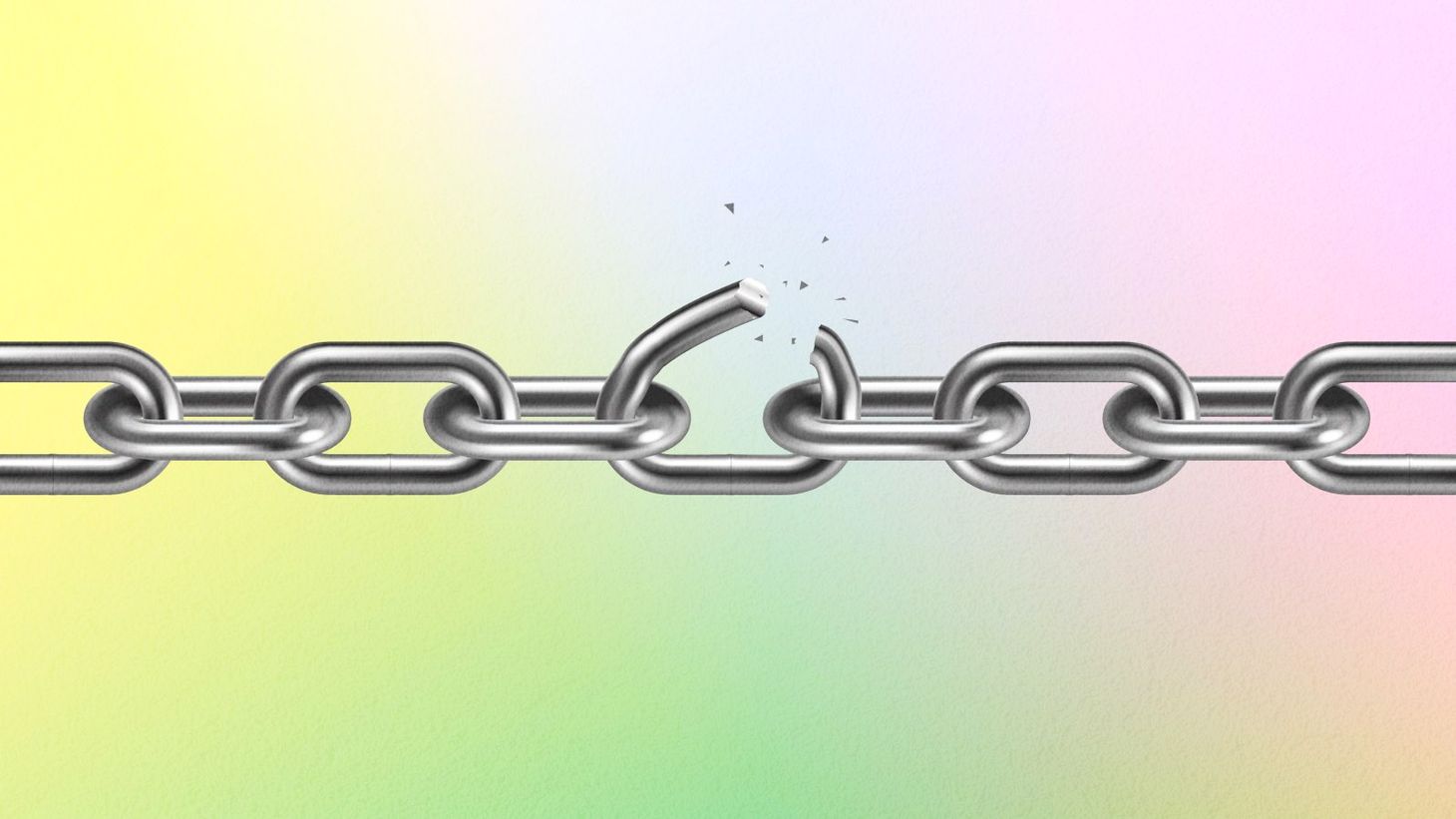The Unchained Web
In 2021, the internet figured out how to generate its own goods, enforce its own rules, and take what it needs from the outside world.

🎧 I chatted with David Nebinski on The Portfolio Career podcast about the future of work, Web3, clubbing, and why you should spend more time on Twitter.
🧠 The January cohort of Hype-Free Crypto is filling up, with 112 participants so far. The November cohort has been wonderful so far, with a diverse group of curious participants — representing five continents, ages 20 to 70, with a background in anything from investment and engineering to art and design. Check out the curriculum and schedule for January here.
📺 I'd like to share with you a recording of one of the sessions from the November cohort, focused on Smart Contracts and Decentralized apps. It is related to this week's newsletter.
The week's newsletter is short. It's been a busy week, and I have 45 minutes before Shabbos. Let's make the most of it.
In 2021, the internet figured out how to generate its own goods, enforce its own rules, and take what it needs from the outside world.
There's been a lot of talks recently about "the Metaverse." But nobody really knows what it means. The term originated in Snow Crash, a science fiction novel, where it was used to describe a virtual world where humans use avatars to interact with each other. A more recent example of this is Mark Zuckerberg's introduction of his own vision of Facebook's future.

It's easy to get distracted by the most visible aspects of the Metaverse. But that's not what's interesting or exciting about it. After all, computer games and avatars have been around for a while, and the promise of attending a zoom meeting with animated rainbows coming out of your ears leaves plenty to be desired.
What is interesting about the Metaverse is the idea that, for the first time, most of our economic and social activity will shift online. Metaverse represents the promise (and the threat) of a digital world that is increasingly self-sufficient. It is not just a place where we "log in" to do our otherwise offline day job, but a place where the goods themselves are digital, where digital systems enforce the rules, and where any necessary resources from the physical world can be summoned on-demand.
This world is already here. This year, we saw an explosion of trade in digital goods: NFTs, virtual land, virtual weapons, and emotes. And some of the world's largest fashion and lifestyle brands are already launching their own virtual products. Plenty has been written about that because it involves colorful items and famous companies.
Buying digital goods is not new, but something is different in 2021. In the past, you could buy something (a weapon, a costume) inside a game, and you could use it only inside that game. Today, you can take digital things with you from one game to another, or you can "take" them to another website and sell them to someone else.
Traditional online games have their own database, their own payment system, and their own user profiles. Each game is a closed universe. But blockchain-based games are different. They all rely on the same basic identity system, payment system, and database. They can build some proprietary systems on top of it, but their default option is to share the same systems.
This might sound confusing to anyone who hasn't used a blockchain wallet. But those who do immediately notice that they can use the same account (and set of public-private keys) to access multiple sites, apps, and games — without creating an individual account on either of them. They also notice how their digital money, assets, and transaction history automatically travel with them.
But it doesn't end there. The interoperability of these multiple apps and games is not just convenient. It opens up the possibility to enforce rules and contracts across a broader "universe." For example, you can use a digital item that you bought in one app in order to get a loan on another app. The blockchain enables the second app to verify that you actually own that item, and to prevent you from selling it to anyone until you repay your loan.
If you don't repay your loan, the lender doesn't need to sue you or resort to the offline legal system. They have the power to confiscate the asset you used as collateral. In fact, this will probably happen automatically unless you repay the loan on time.
This example may sound frivolous or silly (who cares about digital assets?). But as more economic activity shifts online, more digital assets will be used as collateral for loans and as the foundations of new financial products. And, increasingly, business will be governed by systems that are independent of traditional laws.
The ability to enforce laws across apps and websites also makes it possible to do business with strangers. In the offline world, I need to verify the seller has the goods and the seller needs to verify I have the money. And both of us need to ensure we'll get what we bargained for (the actual goods/money) once the deal is complete. Doing so is often expensive and fraught with risk. In a Blockchain-based deal, each of us can easily verify that the other has what they claim to have, and the deal itself cannot happen unless all terms have been fulfilled (see the video about Smart Contracts above, for more details).
This has implications that go well beyond gaming or buying JPEGs online. Consider the case of eGirl Capital, an investment "firm" made of anonymous partners. eGirl Capital's "portfolio companies" might not know the real identity of their investors. In fact, the investors themselves might not know each other's names. But they don't need to. Their fund runs on a smart contract that verifies each of them contributes what they promised to contribute and ensures that the profits from their investment will be distributed based on a pre-agreed plan.
Smart contracts enable large groups of people to pool their money and control how it is invested or shared without having to know anything about each other. Such contracts can be used to form investment groups, raise money for non-profit campaigns, or fund anything else people want to do together. Smart contracts can create incentive structures that encourage (and sometimes force) people to follow a series of actions.
So far, so good. It's nice to have rules and assets that work in the digital world. But what about the physical world? The internet still needs cables, wifi, and other things from the outside. We can't all live online. Or can we?
This year, we saw how online communities and protocols can marshal offline resources. A group of strangers raised over $40 million in one week in order to buy a physical document. Other groups of strangers are trying to raise even more money to buy an NBA team or finance power plants. And an online protocol successfully incentivizes people to install and maintain internet base stations in their offices and homes.
It's early. But these early initiatives point towards a future in which the internet produces its own goods, enforces its own rules and incentivizes the offline world to provide whatever it needs.
See you there. If you enjoyed this piece, subscribe to my newsletter. If you'd like to dive deeper into the promise and limitations of blockchain technology, check out my Hype-Free Crypto course.
Dror Poleg Newsletter
Join the newsletter to receive the latest updates in your inbox.

